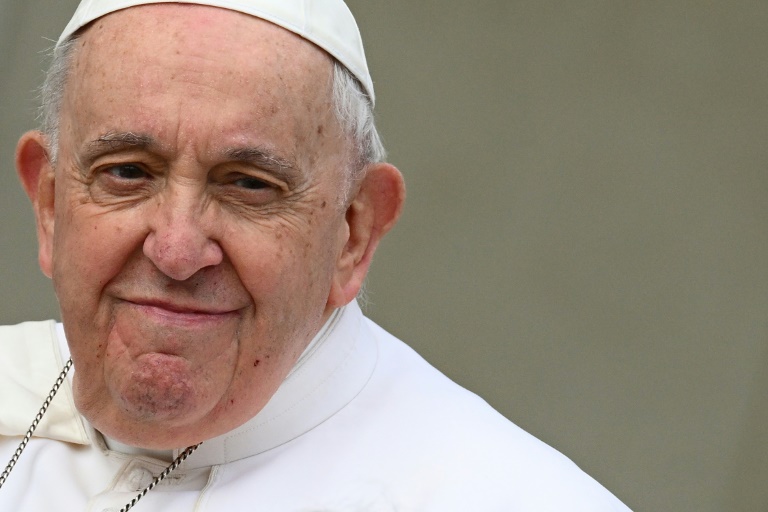AFP
Pope Francis marks 10 years as head of the Catholic Church on Monday, hugely popular but facing internal dissent after a decade of reform, even if he has left basic doctrine intact.
When he appeared at the balcony of St Peter’s Basilica on March 13, 2013 in his plain white papal robes, the newly elected Jorge Bergoglio immediately presented an image of a different kind of papacy.
The smiling, outspoken Jesuit was in sharp contrast to his reserved, intellectual predecessor Benedict XVI, who shocked the world by becoming the first pope since the Middle Ages to resign.
And Francis had a plan — to reform the governance of the Church plagued by inertia, clean up its murky finances and turn its focus outwards.
While he has not deviated from some staunch Catholic beliefs — he has called abortion murder and homosexuality a sin — he has shown a more compassionate and less dogmatic approach, including condemning the persecution of gay people.
“No more demonisation of homosexuality, debates on extramarital relations or the contraceptive pill… all that has been taken off the table,” noted Italian Vaticanist Marco Politi.
Instead, the 86-year-old pontiff — who is seemingly never happier than when among his flock — has emphasised social justice, inter-religious dialogue, the environment and the rights of refugees.
“The pope has engaged the Church on issues that are at the heart of Western democracies, such as the environment, education, law,” added Roberto Regoli, professor at the Pontifical Gregorian University.
In the face of the ongoing sexual abuse scandal that has rocked the Church worldwide, the pope’s reforms have included new obligations to report clerical child abuse and its cover-up.
On the international stage, he has sought to forge alliances around the world, most notably between the Vatican and China, Muslim countries and the Russian Orthodox Church.
However, ties with the latter have been strained by the war in Ukraine, while little has come out of Francis’ offers to broker peace between Kyiv and Moscow.
Despite his advancing age and health problems — he was hospitalised in 2021 for colon surgery, and now uses a wheelchair due to knee trouble — Francis continues to travel widely.
Huge crowds greeted him on a visit earlier this year to South Sudan and the Democratic Republic of Congo, a testament to his ongoing popularity.
Catholics around the world will also remember his guidance during the coronavirus pandemic, particularly when he stood alone during a storm in St Peter’s Square in March 2020, urging believers to ease their fears through faith.
In Rome, Francis’ humble style — he chose a sober apartment over the gold of the apostolic palace and has invited the homeless and ex-prisoners to his table — signalled a shift in attitude from the start.
But some criticise Francis’ penchant for doing things his own way, in throwing off the trappings and traditions of the papal office and adopting a very personal governance of the world’s 1.3 billion Catholics, seeing it as going too far.
“Francis demonstrates an authoritarianism that the Curia hasn’t seen for a long time. Inevitably, this can be irritating,” a senior diplomat stationed in Rome told AFP on condition of anonymity.
Now more than ever, the first Latin American pope faces strong opposition from the conservative wing of the Catholic Church.
Some of it was stirred up by the deaths of two of the conservatives’ leading figures — Benedict, on December 31, and Australian Cardinal George Pell, in January.
Francis has said he would follow Benedict in stepping down if his health made him unable to do his job, but also says resigning should not be the norm, and was not on his agenda.
But preparations for a conclave, at which a successor would be chosen, “have already started — and not manoeuvres on names, but on the ideological platform of the future pope”, Politi told AFP.
On that too, however, Francis is leaving his mark, having so far appointed 65 percent of the cardinals who will one day elect his successor.







